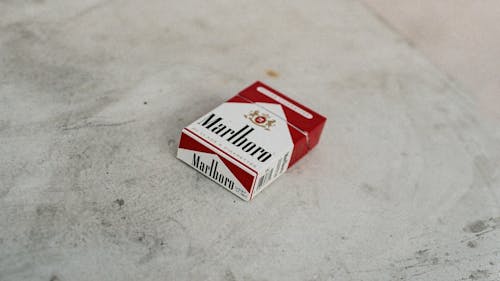Rutgers study finds prevalence of underage tobacco purchases despite legal prohibition

A recent Rutgers study found that despite legal prohibitions on sales of tobacco products to individuals under the age of 21 in 2017, illegal transactions prevail in New Jersey, according to a press release.
In 2017, New Jersey updated a law that prohibits the sale of smoke, smokeless and electronic tobacco products to any individual under the age of 21.
The law was passed two years prior to the federal government’s decision to make the same decision, according to a press release from the Food and Drug Administration (FDA).
Legislation that specifically deals with raising the minimum purchasing age to 21 is known as “Tobacco 21,” or “T21” legislation, according to a resource sheet from the FDA.
Mary Hrywna, the lead author of the study and an assistant professor in the Department of Health Behavior, Society and Policy, said that the state’s law shifts the responsibility of regulating sales to retailers, rather than customers.
This means that when underage purchases occur, retailers are the ones at fault, she said.
Hrywna said the goal of this study was to look at the implementation of T21 laws. Results are expected to vary depending on factors such as the history of the law, how it is enforced and repercussions for not abiding by required laws.
New Jersey was one of the first states to increase the tobacco purchasing age, and while similar research has since been expanded to other states, New Jersey’s early modifications to the law were the reason it was the first state to be studied.
The research involved repeatedly sending five underage individuals into a predetermined sample of New Jersey retailers for nearly a year and a half to attempt to purchase tobacco products, according to the release.
The study revealed that underage buyers were asked to display some form of ID approximately 66 percent of the time and made successful purchases in more than 40 percent of all attempts. When asked to produce ID, buyers could still successfully obtain a tobacco product in more than 10 percent of cases.
“What I think what's even (more) surprising is that even when carded, 14 percent of buyers make a successful purchase,” Hyrwna said. “So in that transaction, the retailer is following through with the motions but making the sale anyway.”
Asking for ID may be the most effective way to deter underage purchases, according to the study, though a higher density of tobacco retailers in a given area can diminish the rates of carding, Hrywna said.
She said that under federal law, ID should be requested from any buyer who appears to be younger than 27 years old. At a state level, New Jersey and several other states changed the orientation of the ID card for individuals over 21 years old, eliminating the need for shop owners to verify the age of individuals attempting to purchase tobacco goods by solely reading a date of birth.
Hrywna also spoke about how tobacco manufacturers have expressed initiative to mitigate underage purchases by providing equipment to electronically verify ID provided by customers, but many buyers in the study did not have their IDs scanned.
“And to me (electronic verification) is a way to basically eliminate any questions, any disparities by perceived age, gender, race — scan the card electronically for everyone that makes an attempt,” she said.
Hrywna said that the study observed the execution of in-person transactions, not internet sales, and there are better tools to verify age than those that are currently used.
Websites maintained by major brands, such as Marlboro and Camel, do not allow customers to enter their platforms until they scan a legitimate form of ID, Hrywna said.
She said that some online shops, such as those that sell electronic cigarettes, simply ask customers to say they are 21 or enter a birth date. Some credit card and delivery companies may also obstruct purchases.
In 2020, New Jersey became the first state in the nation to enact a ban on flavored vaping devices, according to a press release. The law was created as a result of the findings of a state task force dedicated to protecting residents from the risks associated with using e-cigarettes.
Studying e-cigarette shops that operate in New Jersey can be challenging as such shops are not authorized to sell tobacco here, Hrywna said.
Along with restricting the sales of flavored e-cigarettes, Hrywna said that New Jersey has numerous restrictions on tobacco usage and sales, such as the Smoke-Free Air Act and an increased cigarette tax rate.
“We actually have had pretty strong laws on paper,” Hrywna said. “What we're suggesting from the results of this paper and some of what we know about flavored e-cigarettes is that we don't always implement those policies very well in real life.”



